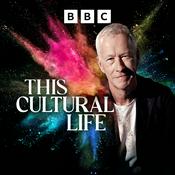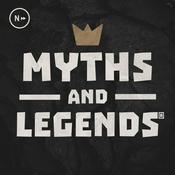170 episodes
- In this, the – at least for the time-being – final episode of his podcast on William Shakespeare's Sonnets, Sebastian Michael offers a brief summary of his findings and also takes the opportunity to examine in a little more detail the view held by some contemporary editors that the sonnets may not principally be about a Fair Youth and a Dark Lady – a contention that is largely based on a supposition that many of these poems "could be addressed to a male or a female" as one recent edition puts it – to see whether it stands up to scrutiny as we formulate any conclusion.
- In this special episode, Sebastian Michael is joined by architect, author, and coder Miro Roman to talk about their experimentation with applying a machine learning approach to comparing the full text of William Shakespeare's Sonnets to the full text of his plays and narrative poems to examine whether such a methodology can confirm the rare word analysis research that has previously been carried out by Macdonald P Jackson and others towards dating the sonnets.
- In this special edition of Sonnetcast, Sebastian Michael takes a closer look at our original source for William Shakespeare's Sonnets, examining in detail the few textual issues it presents, the much debated origin of the manuscript, and the dedication by its publisher Thomas Thorpe to a "Mr. W. H." which has been puzzling readers of these poems for centuries.
- Following an established tradition at the time, William Shakespeare furnishes his collection of 154 Sonnets with a poetic Complaint that acts as a coda to the series.
Where he departs from common practice is in his deployment of an elaborate but for this no less effective distancing device that has an unnamed narrator set up the scene for us and then allows us to listen in on a conversation between a young woman and an elderly gentleman, as the woman relates how she long held out against the charms and wiles of a beautiful suitor but ultimately fell for him.
Also highly unconventional and genuinely surprising is the conclusion the young woman comes to at the end of her lament... - Sonnet 154 brings to a close William Shakespeare's collection of sonnets, and it does so hand-in-hand with Sonnet 153, of which it is not a continuation, but a reiteration.
Like Sonnet 153, the poem borrows directly from an epigram by 6th century Greek poet Marianus Scholasticus, and tells the story of Cupid who falls asleep in a mountain grove with his Torch of Hymen by his side. One of the goddess Diana's nymphs – in this version the most beautiful of them all – takes the torch and attempts to extinguish it in a nearby well, and in doing so inadvertently creates a hot bath for eternity.
In both versions by William Shakespeare, this becomes a place where men may go to find relief for their sickness or disease, whereby neither of the two sonnets specifies just exactly what kind of disease may be so cured and leaves it somewhat open to interpretation whether Shakespeare means merely the affliction of a love sickness, or whether he is also alluding, as is widely believed, to venereal diseases, most particularly syphilis, for which hot baths were considered to be a remedial measure, if not exactly cure, at the time.
More Arts podcasts
Trending Arts podcasts
About SONNETCAST – William Shakespeare's Sonnets Recited, Revealed, Relived
Sebastian Michael, author of The Sonneteer and several other plays and books, looks at each of William Shakespeare's 154 Sonnets in the originally published sequence, giving detailed explanations and looking out for what the words themselves tell us about the great poet and playwright, about the Fair Youth and the Dark Lady, and about their complex and fascinating relationships.
Podcast transcripts, the sonnets, contact details and full info at https://www.sonnetcast.com
Podcast websiteListen to SONNETCAST – William Shakespeare's Sonnets Recited, Revealed, Relived, The Moth and many other podcasts from around the world with the radio.net app

Get the free radio.net app
- Stations and podcasts to bookmark
- Stream via Wi-Fi or Bluetooth
- Supports Carplay & Android Auto
- Many other app features
Get the free radio.net app
- Stations and podcasts to bookmark
- Stream via Wi-Fi or Bluetooth
- Supports Carplay & Android Auto
- Many other app features


SONNETCAST – William Shakespeare's Sonnets Recited, Revealed, Relived
Scan code,
download the app,
start listening.
download the app,
start listening.







































